TikTok stars, post-punk rising stars, and Weezer. It’s another music roundup with takes on Ashnikko’s DEMIDEVIL, Shame’s DRUNK TANK PINK, and Weezer’s OK HUMAN!
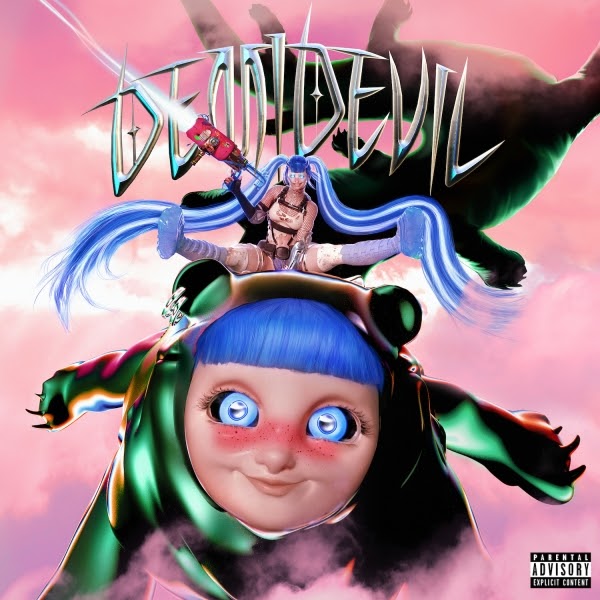
Ashnikko – DEMIDEVIL
Genre: Pop-Trap, Gen-Z Pop
Favorite Tracks: “Daisy,” “Toxic,” “Cry”
Tik-hot virality, or really any kind of virality, usually thrusts young artists into the hands of predatory labels that mismange them or steal their royalties. Ashnikko, who got hot off of “Stupid” and its polairizing, trademark bluntness, has repeatedly delayed this debut mixtape, to the point that Warner Music accidentally shipped physical copies so that she had to release it a month before its February release date. In the meantime, the fact that she co-wrote half of Brooke Candy’s SEXORCISM is slightly worrying, given how one-dimensional it was. But rest assured that Ashnikko is a more distinctive vocal and lyrical personality. Her fusion of bubblegum pop, pop-punk, R&B, and trap is glued together by a hyper-abrasive attitude and a sharp delivery that plays to her brash writing style, and your thoughts on the first song you ever heard from Ashnikko will likely extend to everything else on DEMIDEVIL, for better or for worse.
The worst development here is some slurry Auto-Tune on “Drunk With My Friends,” which might be thematically appropriate but saps her personality and her stalest ever beat on the dated marimba instrumental of “Deal With It.” It sounds like “Shape of You” or “Cheap Thrills” with distorted screams that don’t fit at all. The bassy beats, sharp wailing synths, and clatter of industrial effects on “Daisy” and “Toxic” are her best fit, though the nocturnal oscillation over the mournful acoustics of “Good While it Lasted” and the stripped-down theatre piano of “Clitoris the Musical!” were welcome developments. For someone who claims to take from pop-punk, some of the guitars could use attention. The crunchy spurts against the warbles of “Cry” work for her rawest delivery, even as Grimes’ baby-voice contributes, but the interpolation of Avril Lavigne’s “Sk8r Boi” on “L8R Boi” needed some more muscle, especially the blaring opening leads of the original that are submerged and downplayed on Ashnikko’s hook. It’s a shame because, in comparison to the enjoyable and well-delivered if familiar flexes and break-up songs across the rest of DEMIDEVEIL, it features her most inspired writing yet. The flipping of the original’s male-coded wish-fulfillment into a message of loving herself by dumping a toxic, clingy ex while using the same first three lines of the hook are a clever trick and shows how Ashnikko can pull from previous pop princesses while updating them with new ideas. Even at a runtime of 25 minutes, it’s a little hard to listen to more than one song at a time given how over-the-top everything is, but it succeeds in proving Ashnikko deserves to be more than a flash-in-the-pan. [Blake Michelle]
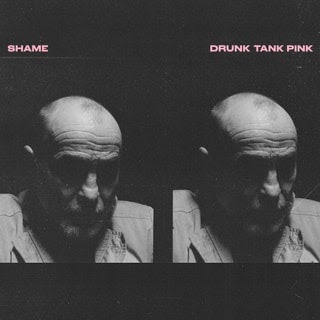
Shame – DRUNK TANK PINK
Genre: Post-punk
Best tracks: “Water In The Well,” “Snow Day,” “Human, for a Minute,” “Harsh Degrees”
In the lifespan of any musical artist, there is no moment more pivotal for the trajectory of a career than the second album. Over the years, countless artists and groups have managed to release smash hit debuts—records that put a brand new nascent talent firmly on the map right off the bat—only to never reach the heights of their first project again, slowly fading into either obscurity or an only half-earned elder statesman role that causes people to wonder what could have been. However, countless have succeeded where others have failed, managing to strike that ever delicate and crucial balance between staying true to what made their first effort successful while also exploring ways to expand upon and improve their original ideas, setting themselves on an ascendant course in the process.
This brings us to South London post-punk outfit Shame, whose second album, DRUNK TANK PINK, has been stationed very highly on my watch list ever since I had the privilege of seeing many of the album’s songs performed live at a New Year’s Eve show only a few blocks from my Chicago apartment just over a year ago. The band’s debut, SONGS OF PRAISE, was a personal Top Ten album in 2018, an insistent and blood-pumping effort overflowing with a brazen, smash-mouth attitude and infectious energy. And luckily, the songs on DRUNK TANK PINK leave none of this behind. The Shame that appears on this record is the same band I fell in love with a few years ago, but they’ve clearly been doing their homework, borrowing bits and pieces from a number of their immensely talented contemporaries to create an album that feels like a sort of culmination of the entire UK post-punk movement over the last five-or-so-years. All your favorite bands are here: The angular riffs and squawking synthesizers of black midi on “Born in Luton” and “Harsh Degrees,” the dry dance-punk grooves of Squid on “Nigel Hitter” and “March Day,” the protracted chaos of Black Country, New Road on “Snow Day,” the snarling venom of IDLES on “Great Dog.” All these sounds and more are reflected through Shame’s own lens to create a tour of the island that never leaves the house, a comprehensive guide for the uninitiated on what you’ve missed and what you can expect going forward. Shame emphatically reject the sophomore slump with DRUNK TANK PINK, establishing themselves further as an essential voice in the punk world that’s here to stay for the long run, assuredly many more excellent records still to come in the not-too-distant future. [Jacob Martin]
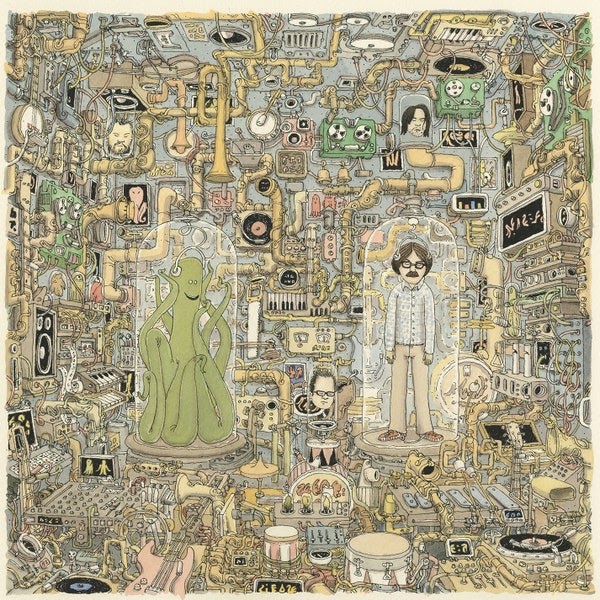
Weezer – OK HUMAN
Genre: Orchestral rock, power pop
Favorite Tracks: “Here Comes The Rain,” “Grapes Of Wrath,” “All My Favorite Songs”
As the band nears their third decade in existence, Weezer’s approach to writing has, despite countless famously questionable stylistic pivots, not really changed—Rivers Cuomo, for all his personal growth, will always be the same pop-damaged eccentric he’s always been. On OK HUMAN, the band’s 14th record, the primary thing that’s changed is the instrument; where Cuomo was once a proud guitarist worshipping at the teenage altar of rock, here he’s tickling the ivories and raising a family. The songs, though, are still largely the same at their core: hook-packed, hugely referential, and even reverential to the art Cuomo is passionate about (although these days it seems he’ll settle for something that simply distracts him), often thuddingly awkward, straddling the line between the broadly relatable and the uncomfortably specific. No amount of Abbey Road orchestration will change the fact that this album could only be made by this band.
Cuomo & Co. are perhaps a bit lucky that topics of social isolation are rather relevant these days. Writing for OK HUMAN started as early as 2017, a time when many of these songs wouldn’t have felt quite so universal. A line about avoiding interviews to play music alone (“Playing My Piano”) might have once come off as hyper-privileged rock-star whining, but avoiding Zoom interviews? Hell, aren’t we all? Falling asleep reading books he only kinda likes (“Grapes of Wrath”) in an attempt to engage with something? As recently as a year ago, that might have seemed like something more suited to working out in therapy than putting on your album, whereas in quarantine many people have surely developed a similar habit. This is not necessarily to say that the subject matter or lyrics work well, but many of them do work, albeit in a way closer to serendipity than insight. However, it’s not the case for everything—questionable moments litter the whole project, but they truly come into focus on “Screens,” a song in which a 50-year-old man with a TikTok account laments the proliferation of social media among the youth and voices concern for the consequences this has for “real” socialization.
I discovered while writing this that Cuomo’s personal website is not only home to the Rivers Cuomo Wiki (all user edits are written in first person and vetted by the sole moderator, Cuomo himself), but also a chat room. I spent an evening anonymously lurking on “Riverchat,” and in that time I saw all sorts of crass and uncomfortable speculation on the guy’s interior life. I don’t even know how to begin to unpack the hypocrisy of Cuomo writing a song where he sings (over a bassline ripped from “Take On Me”) about how social networks create unhealthy parasocial relationships when his personal website encourages anonymous fans to write about him through his voice and discuss his creative output and personal life while the account brandishing his name is, when not being used to seek creative council from “Neighbors” in “Mr. Rivers’ Neighborhood,” operated by a bot which I saw call a female fan’s breasts “homely”—while I think it’s tough to write about this band in 2021 without some degree of psychoanalysis, a discussion of what is likely Weezer’s most straightforwardly palatable albums in years is not the place for it.
Despite the cheeky title, OK HUMAN does not sound much like OK COMPUTER. Outside of “Screens” and “Numbers,” it doesn’t even have a ton in common thematically. They both reflect technological anxieties, but the way the artists react feels diametrically opposed—where Radiohead were nervous and, well, paranoid, Weezer seems resigned, and the record finds them operating on a small scale. The theoretically grandiose nod to “fighting big brother” could come across as tin-eared, but in the world of OK HUMAN, 1984 is just a book to tune out to. The turn-of-the-century album I was most reminded of was not OK COMPUTER, but Grandaddy’s THE SOPHTWARE SLUMP, a similarly lush record of off-kilter pop songs about being stuck in the mundanity of a technological world quickly passing you by and knowing there’s not much you can do about it. If this record has a throughline at all, it’s something closer to this—straightforward and small songs about contemporary human stresses, given the high-gloss treatment with no expense spared. All the pomp and circumstance doesn’t quite stop this from feeling a bit lightweight; for a record that feels so deliberately sequenced, it really just ends out of nowhere, and the schmaltzy strings can occasionally feel like they’re compensating for underwritten songs. Still, if this is a minor record, it’s a hell of a confident one (the chutzpah it takes to use “oubliette” in pop song “Dead Roses!”), even when it’s not quite working. Sure, it’s occasionally awkward, overly on the nose, and a bit insubstantial, but it does it all in style and by no means skimps on the hooks. If you have ever liked Weezer, you probably know the drill by now, but this record is compact, punchy, and shows a band trying new things and doing them pretty well with a bare minimum of extraneous baggage. Even if a complete reinvention may be impossible, to see a band keep trying even as they push thirty is utterly charming. [Evan Pincus]





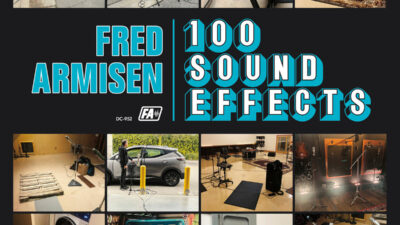





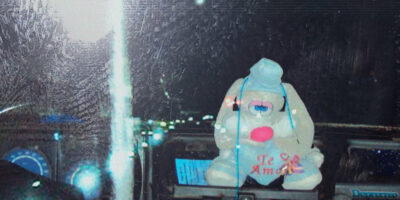




Comments